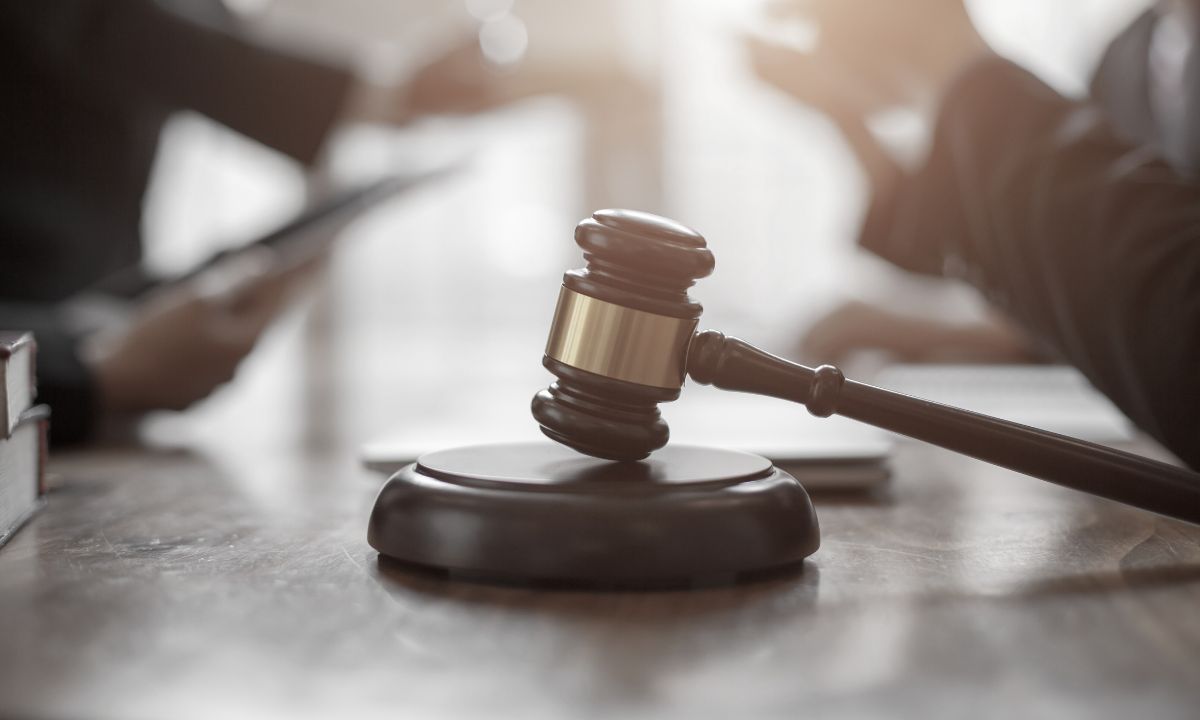The term esquire, often abbreviated Esq., often appears at the end of an attorney’s name. You may have seen it on your attorney’s letterhead or the attorney’s signature on formal letters and emails. But what does esquire mean?
In legal terms around the United States, the meaning of esquire simply refers to someone who is authorized to practice law. Any lawyer can take on the title esquire, regardless of what type of law they practice. Family lawyers, personal injury attorneys, and corporate lawyers all have the right to use esquire as a title.
In general, a lawyer is not entitled to use the term esquire until they graduate from law school and pass a State Bar exam, conferring on them the right to practice law in a given state. After graduating from law school and before passing the bar exam, the law school graduate may add the abbreviation J.D., for Juris Doctor, after their name.
As a title, esquire, meaning shield bearer, originated in Great Britain and France as a term of nobility in the Middle Ages. It applied to the squire of a knight, who hoped to acquire a noble rank as he rose to knighthood himself. In The United States, however, our Constitution prohibits noble titles.
Esquire: Meaning and Use in Verbal Communication

While the term esquire could be used in very formal settings as part of an introduction—”This is Martin Jones, Esquire,” for example—most of the time, it appears in formal written correspondence more often than in verbal communication. In general, lawyers should not refer to themselves as esquire, though others may introduce themselves that way to establish their profession as part of the conversation.
An attorney’s colleague or friend might use the formal title to explain how they know the law when discussing a legal topic or to help designate them as an attorney whose word bears weight in legal negotiations. Usually, however, simply introducing a lawyer by name and indicating their profession will offer the same information. Also, a practicing attorney should never be referred to as an esquire lawyer.
Using Esq, or Esquire, in Written Communication
The term esquire, or the abbreviation Esq., gets used most frequently in written legal communications. It offers a sign that you have communicated directly with an attorney rather than a legal assistant, paralegal, or someone else within the office. Most often, Esq. serves as a notice that you need to pay attention to the content of a document since it comes directly from a lawyer and not from someone else in the office.
Many law offices have policies that will govern the use of esquire on the letterhead or an email signature line, which may need to fit specific criteria related to the firm’s image.
Note that, when using the esquire meaning as a formal form of address in written communication, it, like the term Dr., can replace the title associated with the person’s name. You might, for example, address a formal communication to Martin Smith, Esq., or to Mr. Martin Smith. However, you would not want to address your communication to Mr. Martin Smith, Esq., if you want to keep the grammar and formality correct. You would also use the traditional title—Mr., Ms. or Mrs.—in the greeting of your message.
Acquiring the Right to Use the Title, Esquire
To use the title esquire, an individual must go through several steps to acquire a legal education and receive the right to practice law in a given area.
Step One: Passing the LSAT
The Law School Admission Test, or LSAT, offers a rigorous, half-day exam that tests the student’s analytical reasoning, logical reasoning, and writing skills. The multiple-choice test has sections for logical reasoning, analytical reasoning, and reading comprehension. It also contains an unscored variable section, which asks students to answer questions considered for use on the test in future years to ensure that they remain appropriate for a diverse audience.
The LSAT has scores ranging from 120 to 180. Top candidates who want to go to the most prestigious law schools in the country aim to score 165 or above on the LSAT. Each year, students vie for high scores that will get them admitted to law school.
Step Two: Attend an Accredited Law School
Most law schools require three years of intensive study. Before they can attend law school, potential lawyers must already have a bachelor’s degree, though they can hold that degree in any field.
However, a degree in a field that helps prepare students for a deeper understanding of the law can make it easier for students to excel in law school. In law school, students will have a chance to choose various legal courses, including administrative law, civil litigation, family law, taxation, wills and trusts, and other specific aspects of the law.
While attending law school, some students may choose to focus their studies in a specific area: family law, for example, or personal injury law. By choosing one area of law, potential lawyers can deepen their understanding of a specific branch of the law, so they can deliver a high standard of service to their clients when they join or start a firm after graduating.
Simply getting into law school can pose a significant challenge for many students. Students must not only have a solid understanding of the concepts they need to pass the LSAT; they may need to show a solid grade point average (GPA) and a commitment to extracurricular activities that help them stand out from the crowd of applicants.
Step Three: Passing the Bar Exam
Once students graduate from law school, they cannot simply go out and jump into their first position with a law firm. Instead, students will have to take one final exam: the state bar exam. Each state Bar Association governs the regulation and licensing of attorneys, controlling who can practice law within specific states and what standards attorneys must continue to meet.
The bar exam assesses whether a particular candidate has the necessary knowledge to practice law within a specific state. In addition to multiple-choice questions, the bar exam includes an essay component that gives a candidate the chance to show the full extent of their knowledge and why they should have the right to practice law in a specific state.
Once a student passes the bar exam and the state Bar Association confers upon them the right to practice law in the state, they can add the title Esquire to their communications. For many attorneys, this title represents the culmination of the hard work they put into their studies and efforts and their right to practice law, represent clients, and have their voices heard within the legal community.
The esquire meaning is a hard-earned designation of the attorney’s effort toward acquiring that position, even before they accept their first position within a law firm or work with their first client. Some state bar exams create notably more stress and have lower pass rates than others. Regardless of the state, however, overcoming that final obstacle offers cause for celebration.
What the Esq. Title Means
Simply put, the title Esq. means that someone has the right to practice law within the state. Generally, it means that the individual in question has passed the bar exam, which means they went through law school and understand the laws of their state. It does not automatically mean that the individual can offer comprehensive advice about specific areas of the law.
Once a lawyer graduates from law school and passes the bar, they will often move on to a law firm. That law firm will typically practice in a specific area of law, meaning that the graduate will also focus their practice in that specific area of law. This allows them to gradually deepen their understanding of those specific elements of the law. They may, however, have much less in-depth knowledge of other areas of the law.
Consider, for example, a lawyer who chooses to practice only in family law. They know what elements you should consider when drafting a child custody arrangement after your divorce. They can probably help you put together a will that closes any loopholes and ensures that your assets get distributed according to your wishes after your death. On the other hand, they likely cannot instruct you about the full compensation you deserve in a personal injury claim or represent you in court during a criminal trial.
Likewise, you would not want a personal injury attorney to be your sole source of advice when determining how you should best handle a complicated custody claim. An attorney who does not limit their practice to a specific area of the law can offer you a better response than the average citizen on the street. However, they may not have the in-depth knowledge related to your specific case that you need to make effective legal decisions. In that case, you should request a referral to a lawyer who better understands your needs.
Can Lawyers Use the Term Esquire After Retirement?
An attorney may choose to keep this honorific, Esq., as part of their title even after retirement. It indicates the effort they put into their studies, their professional career, and the support they gave the clients who came through their firm over the years.
No official rule governs the use of esquire after retirement. However, retired lawyers should not use the term esquire to drum up business in another state as part of an unauthorized practice of law, nor should they use it to represent themselves as active, practicing lawyers. Instead, it serves as a reminder of their past commitments and practices.
Beyond Esquire Meaning, Some Other Legal Abbreviations You Might Need to Know

While researching the legal options and law firms available to you, you may notice that lawyers use many abbreviations. Understanding the definitions of these titles can help you get a better idea of the scope of these attorneys’ practices.
LL.M. (Legum or Legum Magister) refers to an attorney who has earned a Master of Law degree through advanced legal study in a particular area. This degree indicates that the attorney has advanced expertise in that area and may be beneficial when dealing with complicated legal issues, such as those involving corporate law or taxation.
J.D. (Juris Doctor) indicates that someone has graduated from law school with a graduate-level degree, which is necessary to practice law within the United States.
LL.B. (Legum Baccalaureus) is a title used outside the United States in most common law jurisdictions that meets the same requirements as a J.D.
Lawyers who obtained their degree outside the United States or who practice law in another country may use this designation to indicate the successful completion of their schoolwork. The term “esquire” is not typically used by lawyers and legal graduates outside the United States since it historically signified a noble rank in the United Kingdom, where it may also be used as a courtesy title or formal address.
J.S.D. (Juridicae Scientiae Doctor) designates a student who has earned a Doctor of Science of Law degree equivalent to a Ph.D. in law. This degree often indicates that the recipient plans to become a legal professor or has exceptional knowledge and understanding in their field.
JP typically stands for “Justice of the Peace.” However, the term “Justice of the Peace” is not typically used in the United States federal court system. Instead, the term “Magistrate Judge” is used to refer to a judicial officer who assists district court judges with various aspects of their caseload.
These duties might include conducting pretrial proceedings, issuing search and arrest warrants, and hearing certain types of civil cases. In some state court systems, the term “Justice of the Peace” may be used to refer to a judicial officer who presides over small claims court or performs other judicial duties, such as marriage ceremonies, depending on the jurisdiction.
P.A. (professional association) usually appears after the name of a law firm and stands for a professional association. It indicates that the law firm is a separate legal entity from the lawyer members, reducing their personal liability associated with the firm.
When considering which lawyer is best suited for your particular situation, asking specific questions about their field of practice, qualifications, and law firm resources may be helpful. An experienced attorney at Dolman Law Group Accident and Injury Attorneys, PA, will be glad to answer all of your questions during a free consultation.






